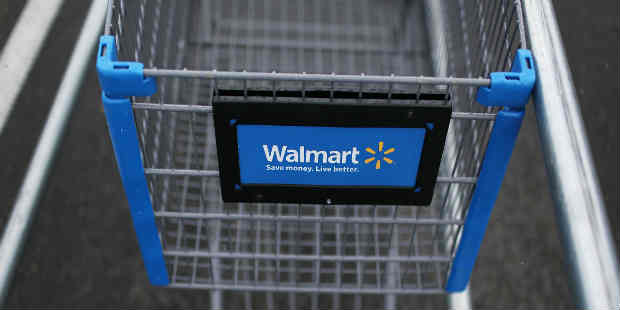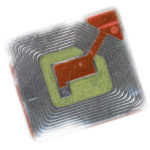Wal-Mart has already begun its RFID tagging and EPC electronics labeling program, and insists that its suppliers cooperate in 2005 to complete the labeling of their product packaging.
Wal-Mart has sparked a revolution in RFID technology that has attracted widespread attention around the world. It is currently trying out this Wal Mart rfid tag on the products of eight suppliers, including Gillette, Procter & Gamble, Kraft Foods and Unilever brands, covering supermarkets mainly in the Dallas/Fort Worth area.
The trial, which was first introduced on April 30, 2004, involved 21 products from seven supermarkets in North Texas, and Wal-Mart hopes to lay the groundwork for its next move by requiring its top 100 suppliers to Wal-Mart hopes to use this trial to lay the groundwork for its next move, which will require its top 100 suppliers to implement RFID stickers in January 2005. The trial is as follows: products from these eight suppliers, in its outermost packaging are attached to RFID tags, and then these pallets and boxes are shipped to Wal-Mart’s distribution center in Sanger, Texas; and finally to Wal-Mart’s seven big-box stores in the region, where RFID tag readers are installed. In this way, this technology allows retailers like Wal-Mart to greatly improve the transparency of their supply chain, both in terms of the inventory of their suppliers’ products and the logistics management of their distribution centers.
With different software and technology vendors developing different RFID products in the market today, Wal-Mart’s suppliers are faced with so many choices but are at a loss.
Now we have seen many other companies. In the United States, there are Target and Albertsons supermarket group, and in Europe, there are Metro and Tesco. As things stand now, there is a lot to be excited about, and people are beginning to People are beginning to realize the benefits of RFID technology. Its light-less reading and automatic identification make it possible to collect and process information throughout the supply chain in a much simpler way, so that people can know exactly which item is in which place and know exactly how the logistics process works.It allows people to know exactly which item is in which location and to be aware of anything that is happening in the logistics process.
This technology creates a new paradigm for item identification and data collection, and it will give us significant business opportunities, but at the same time, we have a lot of challenges to face. We are really introducing a set of advanced technologies to our complex production and logistics systems that can make their processes much simpler.
We do introduce a set of advanced technologies to complex production and logistics systems that can greatly simplify their processes. However, in practice, we must first be able to collect and manage the information, then encode and enter it into tags, while ensuring the accuracy of the encoding in the tags, and finally
The information has to be collected and processed by a reader, or there are more processes to be done. Therefore, from a technical point of view, the interaction of the entire system and the appropriate application of the data poses a variety of new challenges for users.
The challenge is to make the system interactive and to apply the data appropriately. We previously viewed RFID as an emerging business opportunity, but learning more about it has given us a different perspective on how the market is evolving and we are making more informed investment decisions accordingly.”
SEIKO RFID TECHNOLOGY LTD now offers RFID tags, a variety of rfid labels, rfid on metal tags, rfid laundry tag and rfid readers, in additional, rfid hangtag and rfid sticker for wal mart supply chain.
In Europe, RFID technology will soon enter an accelerated phase of development in the future as more and more retailers and suppliers begin to apply and continue to develop this new technology. European retailer giants are also setting deadlines for the rollout of their RFID technology, which provides an important reference point for their suppliers to develop new development strategies.




